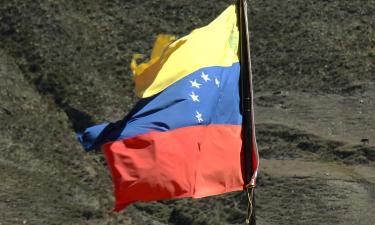Boris Pasternak: The Nobel Prize. Son's memoirs.
It is one of the most remarkable events of all associated with Boris Pasternak’s 100 years celebration – a decision of Nobel Prize committee to restore the historic truth and call the writer’s refusal to receive the prize compelled and void. The original decision to award the prize to Boris Pasternak in 1958 turned into a scandal. It poisoned all his remaining life, and during 30 years it was prohibited topic in USSR.
Rumors that Pasternak was to receive the Nobel Prize started right after the World War II was over. According to the current Nobel Committee head Lars Gillensten, his nominee was discussed every year from 1946 to 1950, then again in 1957 (it was finally awarded in 1958). Pasternak guessed about such processes by growing waves of criticism in USSR. Sometimes he had to justify himself of European fame: “According to the Union of Soviet Writers, some literature circles of the West see unusual importance of my work, not matching its modesty and low productivity…”
To justify this attention he focused passionately on “Doctor Zhivago”, his artistic testament to the Russian spiritual life.
In the fall of 1954 O.Freidenberg asked him from Leningrad: “There’s a rumor here that you’ve received the Nobel Prize. Is it true? Otherwise, why such rumors?” Pasternak answered her: “Same rumors are here too. I’m the last one they reach. I would more likely be afraid this to become truth, than to wish it, despite such award does not necessarily mean a trip there, to the wide open world, nor an exchange of thoughts – but still, I wouldn’t be able to act as usual talking doll on such trip… Such a Babylon capture. Seems like God saved, the danger passed. The nomination must have been made, definitely and widely supported. Belgian, French and German papers wrote this…Then people hear on BBC that (I tell what was told only) I was nominated, but knowing the customs, the committee waited for the governmental agreement, which asked them to change my nominee to Sholokhov’s. He was declined and changed to Hemingway’s, who is likely to be awarded. (But I was glad to appear even probably together with Hamsun, Bunin and, despite by mistake, close to Hemingway”
“Doctor Zhivago” was finished the next year. Albert Camus was observing the process of its French translation with sympathy. Camus received the Nobel Prize in 1957, and in his speech in Sweden spoke about Pasternak with admiration. The Prize was awarded to Pasternak in 1958 “for his important achievement both in contemporary lyrical poetry and in the field of the great Russian epic tradition”. On the 29th of October 1958 he received a telegram from the Nobel Committee secretary Anders Esterling. Pasternak replied: “Thankful, glad, proud, confused”. He received greetings from the neighbors – Ivanov, Chukovsky; telegrams and reporters came in dozens. Zinaida Nikolaevna was thinking which dress to order for Stockholm. It seemed that all mischief and oppression followed “Doctor Zhivago”, calls to Communist Party Central Committee and to the Writers Union were over. The Nobel Prize is an absolute victory and recognition, an honour to all Russian literature.
But the next morning came Fedin from the party, passed by Zinaida Nikolaevna and went straight to Pasternak’s room. He demanded the writer an immediate demonstrative refusal, threatening with persecution in media. Pasternak replied that nothing will make him refuse the honour, that he had already replied to the Nobel committee and can not appear an ungrateful deceiver to it. He also refused to go to Fedin’s summer house where the chief of Cultural Department of the Party’s Central Committee waited for Pasternak’s explanations.
Those days I visited father frequently. He worked as usual (he was translating “Maria Stewart” at the time), was light and did not read newspapers, saying that would go through any deprivations for the honour of becoming a Nobel laureate.
It is in this tone exactly he wrote the letter to the Writers Union. He did not attend its session, where his membership was seized. One famous female writer shouted there: “A bullet to the traitor’s head!”. The letter seems to be destroyed, as we have tried to find it very hard in the Union’s archives. Father spoke gladly about it. There were 22 points, of which remarkable was this:
“I think it is possible to write “Doctor Zhivago” being a soviet citizen, especially as it was finished when Dudintsev’s “Not on bread only” was published to signify thawing period. I sent the book to Italian communist publisher and been waiting for a censored version to be published in Moscow. I agreed to correct all the unacceptable places. Opportunities of a soviet writer seemed wider than they are. When I handed the book as it is, I expected a friendly hand of critics to touch it.
Sending thankful telegram to the Nobel committee, I did not think the Prize was awarded to me for “Doctor Zhivago”, but rather for my entire work, as it was formulated. I could think so, because my nomination was on list in times when this book did not exist and no one knew about it.
Nothing will make me refuse the honour rendered to me, a modern writer living inRussia,andhenceasovietwriter.However,themoney of the Nobel Prize I am prepared to transfer to the Peace Protection committee.
I know that under the public’s pressure a question of my membership in the Writers Union will rise. I don’t expect justice from you. You can kill me, send to exile, do anything you like. I forgive you. But don’t rush. This wouldn’t give you neither happiness nor glory. And remember that in some years you would have to rehabilitate me. It is not the first time in your practice.”
Proud and independent position supported Pasternak in tolerating all insults, threatening and mass-media anathemas during the first week. He was worried whether me or my brother have any problem at the work or in uni. We calmed him. I passed him news from Ehrenburg about great wave of support in the western press.
But his interest to all this faded on the 29th of October, when he phoned Olga Ivinskaya and then sent telegram to Stockholm: “Due to the resonance caused by my award in the society I belong to, I have to decline the Prize; don’t consider my voluntary refusal an insult”. He sent another telegram to the Party’s Central Committee: “Restore Ivinskaya at her workplace, I declined the award”.
 (Olga Ivinskaya was Pasternak’s muse and love during the last 14 years of his life. She remembers this: “Many friends stopped seeing us. There was a feeling like we’re in the barn…” Actually, Pasternak has always been under danger, but before authorities were afraid to approach him directly, there was no “proper” reason. Instead, they approached Ivinskaya: 9 years before the Nobel Prize scandal, she was arrested and put to Lubyanka prison. Pasternak run to every office, it did not help. She was pregnant, and had a miscarriage in the jail. Pasternak fell with heart attack. Soon she was sent to Mordovian political prisoners camps for 4 years.
(Olga Ivinskaya was Pasternak’s muse and love during the last 14 years of his life. She remembers this: “Many friends stopped seeing us. There was a feeling like we’re in the barn…” Actually, Pasternak has always been under danger, but before authorities were afraid to approach him directly, there was no “proper” reason. Instead, they approached Ivinskaya: 9 years before the Nobel Prize scandal, she was arrested and put to Lubyanka prison. Pasternak run to every office, it did not help. She was pregnant, and had a miscarriage in the jail. Pasternak fell with heart attack. Soon she was sent to Mordovian political prisoners camps for 4 years.
She accused herself bitterly for persuading Pasternak to decline the prize. After all what had happened, open shadowing, friends turning away, Pasternak’s suicidal condition at the time, one can possibly understand her: a memory of Stalin’s camps was too fresh, she tried to protect him.)
I couldn’t recognize my father when I saw him that evening. Pale, lifeless face, tired painful eyes, and all talks about the same: “Now it all doesn’t matter, I declined the Prize”.
But no one needed this prey anymore. It did not ease his condition. It left unseen by the Moscow Writers assembly, which gathered in two days. The Moscow writers asked government to seize Pasternak’s citizenship and send out of the country. The resolution approving his departure from the Writers Union was met with triumphing roar. It is to be said, however, that K.Paustovsky and V.Kaverin did not attend this shameful event, and E.Evtushenko and I.Ehrenburg left in the middle.
Father was hurt by Zinaida Nikolaevna’s decline to follow (she said she can’t leave motherland and my brother, who decided to remain with mother), and was really happy to hear my agreement to follow him wherever he would be sent to.
He would have been exiled straight away, but for Jawaharlal Nehru, who phoned Khrushchev and said he would head the Committee for Pasternak’s protection. To end it all quietly, Pasternak had to sign the party-written references to “PRAVDA” and Khrushchev. It doesn’t matter if their texts are good or bad, and what dominates there – repentance or self-affirmation, what matters is Pasternak did not write them, and was forced to sign. And this humiliation, torment to his will, was especially hurting because he realized no one needed that.
He wrote a poem called “The Nobel Prize”, where he asked “what sort of dirty trick I’ve done, am I a murderer, a villain? I, who made the whole world crying of my homeland’s beauty” (there was also a part dedicated to Ivinskaya). After it was published in 1959 in English in “New Statesman”, Pasternak was called to the chief persecutor. He was accused in state treason, and threatened with arrest in case he meets any foreigners.
The saddest, the cruelest thing: after Pasternak’s death in 1960, Ivinskaya was sent to Mordovian camps again, this time together with her daughter.
Years passed. Today I’m nearly the same age as father was in 1958. An exhibition “World of Pasternak” was opened on the 1st of December 1989, to which the Swedish ambassador Mr. Werner brought the Nobel Prize Laureate Diploma. The medal was to be given at the banquet for 1989 laureates in Sweden. Mr. Werner thought I had to come to Stockholm and receive the prize. I said I can’t imagine how this might be done. He received acceptance from the Nobel committee, Swedish embassy and Russian Ministry of Culture, made all papers in a few days, and on the 7th of December me and my wife were on a plane decorated with Christmas bells…
Originally published in Russian by NiT in "Nobel Laureates" series, on the 10 November 2001. Copyright of the Russian version of the article belongs to NiT. Translation copyright by PRAVDA.Ru
Subscribe to Pravda.Ru Telegram channel, Facebook, RSS!





